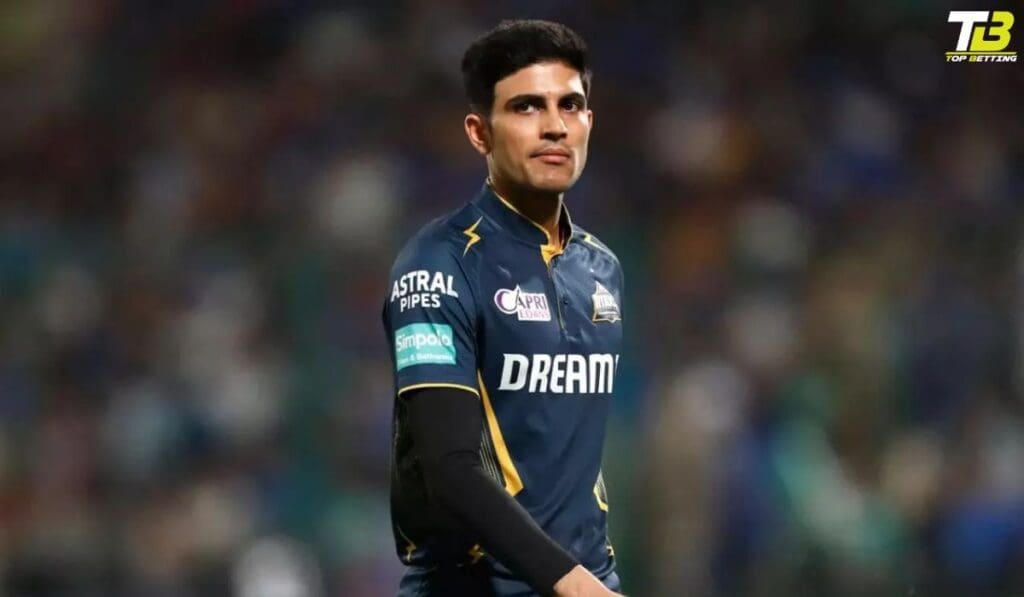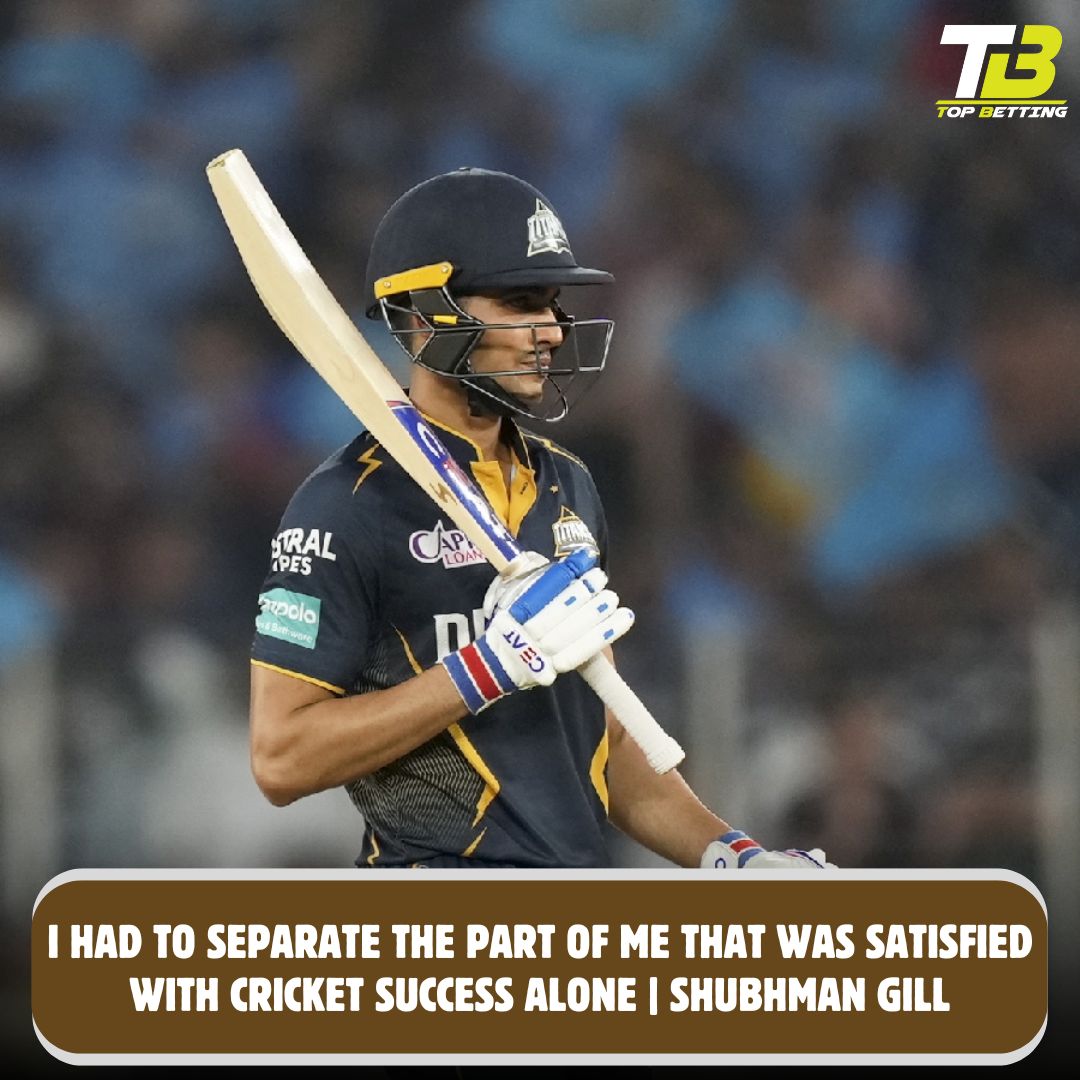
I had to separate the part of me | Shubman Gill
Shubman Gill discusses his approach to handling success and disappointment in an exclusive conversation with Sriram Veera & Sandeep Dwivedi, just days before he was excluded from the Indian team for the T20 World Cup. He has matured from the young phenom who never failed to a seasoned great who is content with the unglamorous uncertainties of the game.
Shubman Gill enjoying some downtime with Ed Sheeran while the English music sensation was in India. Gill provides the voice of the Indian Spiderman in the extensive film series. Gill on the cover of GQ. The 24-year-old youth star is well-known, but he is not on the Indian T20 World Cup roster since the country has opted to field veterans for the June competition in the US and the Caribbean.
He may get harmed, but he won’t suffer any harm. After relatively run-bare years in Test cricket in 2021 and 2022, Gill experienced rejection, lost his hunger for the game, felt “disconnected” from the sport, and started to question himself. However, he went back to the original inspiration of his four-year-old beginnings to play it and renewed his passion.
Since he was named the 2018 under-19 World Cup’s “Player of the Tournament,” Gill has been considered the next great batsman to come out of India. When supporters and commentators brought up his name with Virat Kohli and Sachin Tendulkar, it wasn’t simply wishful thinking.
He did perform as expected. Gill’s scorching 91 in the historic India vs. Australia Test match in Brisbane in 2021 set up India for a remarkable victory.
After that high, though, he would experience something unusual and unaccustomed to his life: relative failures in Test cricket. Before the end of 2022, his average was only 26.50. The youngster, who had never experienced three consecutive failures in any age group or level, was now overcome with uncertainty.
It felt odd, that much is certain. There was a moment when I felt cut off from the sport. I didn’t feel good, even when I was performing well. I would feel pressure to do well in the following four games because I felt like I had lost out on the previous three or four. And there was no happiness in winning that one game. A few days before being named as one of the three traveling reserves for the T20 World Cup, Gill told The Indian Express, “I wasn’t enjoying the good thing.”
It’s taught me a great deal. I have to grow as a person in order to escape it. I had to separate the part of myself that was content when I played cricket. Gill adds, “I will be happy only when I score runs. Ki khush tabhi hounga, jab run ban rahen hain mere.”
It’s going to be very difficult if this type of humdrum mindset persists. In the game of cricket, you won’t consistently score 100s. Gill stops and looks at you directly through the Zoom screen of his gadget, directly into the camera lens. “If I am only happy with a 50 or a 100, then… I don’t want to live a life like that,” he says. Startlingly, the philosophy spills out and the ever-so-natural stare looks directly into the mechanical eye rather than at the pixelated faces on the screen. The innate affinity of a young person for the digital age and traditional knowledge mesh well together.
All the two had to do was glance back at their early years. “I trained for six or seven hours a day—three hours in the morning, a lunch break at the academy on the Mohali stadium, and then three more hours—from the age of eight till I turned fourteen and started playing regularly in the U-16 and U-19 circuit. Even eight hours, on occasion.
His father would have to go to a street cart outside the stadium for lunch. There used to be a patties-wala there. Gill revels in the glory of #ThrowbackThursdays, saying, “So patty, kulcha, anything that could be eaten quickly and I could return to batting.”

After reflecting and realizing again how much he loved to practice, Gill developed his batting philosophy, or mantra.
“I desire for my body to rule my intellect. Not my thoughts taking over, not getting carried away, not allowing self-doubt to germinate. I want my body to take charge of my thoughts since I have practiced so much for so long. Allow the muscle memory to take over. It is necessary to quiet the mind that casts doubts and says, “Not like this, but like this.” Jo dimaag baar baar bol raha hai — aisey nahi, aisey. How to allow the body to rule the thinking is my challenge. Tell your thoughts to keep silent for itself.
Gill remains silent. We turn to Gill, the young hero, believing that he is a very self-aware batter who knows his skills and flaws. Cricket players that are older frequently don’t get the younger generation and how they interact with social media. However, for Gill and the younger group, it’s almost an extension of who they are.
Gill responds, “I am very clear about it.” “Yes, there is a lot of trolling, and while I can understand why it may be painful, I only utilize it for enjoyment. Nothing on social media is taken seriously in my opinion. You should keep it for amusement only. Then there is no issue.
He is looked up to by young people across the nation for problem-solving advice. He’s already much more than a cricket player. A symbol. What does he think about that obligation? He makes the correction right away.

“I don’t see it as a responsibility, but if I can inspire someone in any way, or help them in any positive way—grooming, discipline, ethics, punctuality—there’s nothing quite like that.”
Gill, the little child who believed that his family’s ardent devotion to the game was the most natural thing to do and who thought that playing international cricket was an unnatural rollercoaster, is now developing into an adult who appears to be at peace with both himself and the ups and downs of life.
He now understands that the trip is the destination in and of itself, so it won’t come as a shock if he discovers that the T20 World Cup selection hiccup is only a speed bump to be navigated rather than the end of the road.










